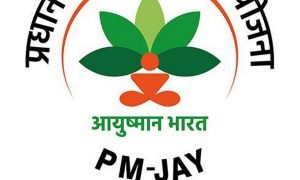The CBDT’s investigation focuses on potential discrepancies between the information provided by taxpayers and the records of foreign remittances.
Read More: Fake GST Registrations: CBIC To Begin 2nd All-India Drive on August 16
The Central Board of Direct Taxes (CBDT), the principal authority responsible for direct tax administration in India, has reportedly initiated a comprehensive inquiry into substantial foreign remittances surpassing Rs 6 lakh. According to reports, this initiative seeks to uncover inconsistencies between the incomes reported by taxpayers and the actual sums transferred abroad, according to CAclubindia.
The CBDT’s investigation focuses on potential discrepancies between the information provided by taxpayers and the records of foreign remittances. This examination arises from increasing apprehensions regarding unreported incomes and foreign transactions, which may contribute to tax evasion.
Read More: ITR refund scam: Income Tax dept issues warning, asks taxpayers to be alert. Check details
Higher TCS on Remittances Over Rs 7 Lakh
This investigation highlights the increased Tax Collected at Source (TCS) rates established by the Finance Ministry for remittances exceeding Rs 7 lakh. As of October 1, 2023, the TCS rate for these transactions has been elevated to 20%, a significant rise from the former rate of 5%. Although initially intended to take effect on July 1, 2023, the implementation was postponed to October 1 due to public opposition.
Exemptions and LRS Overview
Certain categories, such as medical and educational expenses, are exempt from this elevated TCS rate. According to the Reserve Bank of India’s Liberalised Remittance Scheme (LRS), resident individuals are permitted to remit up to $250,000 per financial year for eligible transactions. Nevertheless, the increase in TCS is designed to prevent misuse and ensure that substantial remittances are taxed appropriately, informs CAclubindia.
Understanding TCS
Tax Collected at Source (TCS) refers to an extra tax imposed by the seller during a sale, which is subsequently remitted to the tax authorities. Taxpayers can offset TCS against their total tax obligations when submitting their income tax returns, and any surplus can be requested as a refund.
The CBDT has intensified its examination of foreign remittances, indicating the government’s dedication to enhancing tax compliance and curbing evasion. Individuals involved in substantial foreign transactions must ensure complete transparency to mitigate the risk of penalties and scrutiny, suggests CAclubindia.





































